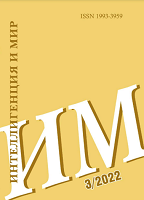Плоды учености»: народные университеты России
«BENEFITS OF SCHOLARSHIP»: PEOPLE’S UNIVERSITIES IN RUSSIA
Author(s): Vladimir Vyacheslavovich KomissarovSubject(s): History of Education, State/Government and Education, Book-Review
Published by: Ивановский государственный университет
Keywords: higher education; intelligentsia; national universities; “free school”; scientific popularization;
Summary/Abstract: Review of: «Плоды учености»: народные университеты России. (. People’s universities of the Russian Empire: from popularization to the organization of science) Рец. на кн.: Фандо Р. А. Народные университеты Российской империи: от популяризации к организации науки. М.: Янус-К, 2020, 344 с. The presented publication is a review of the monograph by R. A. Fando devoted to the emergence, history and activities of people’s universities in the Russian Empire at the beginning of the XX century. The People's universities became part of the so-called “free school”, which existed independently of the imperial universities and was financed, among other things, by private capital and funds of patrons. The review notes the relevance of the topic of the monograph. Studying the history of people’s universities can give the necessary experience to the formation of a non-state school in the country, its forms and organization. In addition, many aspects of the activities of people’s universities are still poorly studied in historiography. The monograph is based on a wide range of sources and literature. Here we can see archival materials from the collections of central and local archives. These sources are supplemented by an extensive corpus of published documents, memoirs and research literature. The author of the monograph examined many aspects of the activities of four national universities in Moscow, Petrograd, Nizhny Novgorod and Tomsk. This choice was determined by the fact that they represented different regions of the country with their own specifics. The monograph examines the teaching staff of national universities, the contingent of students. The author studies the forms of self-organization of teachers and students, the growth of scientific research. This review emphasizes that many of the conclusions of R. A. Fando lie in the plane of intelligentsia discourse. For example, this is a conclusion about the active citizenship of the professors of the “free school”. It is also important to conclude that the experience of people’s universities did not disappear after the revolution of 1917, but was in demand when creating the Soviet system of higher education.
Journal: Интеллигенция и мир
- Issue Year: 2022
- Issue No: 3
- Page Range: 183-192
- Page Count: 10
- Language: Russian

